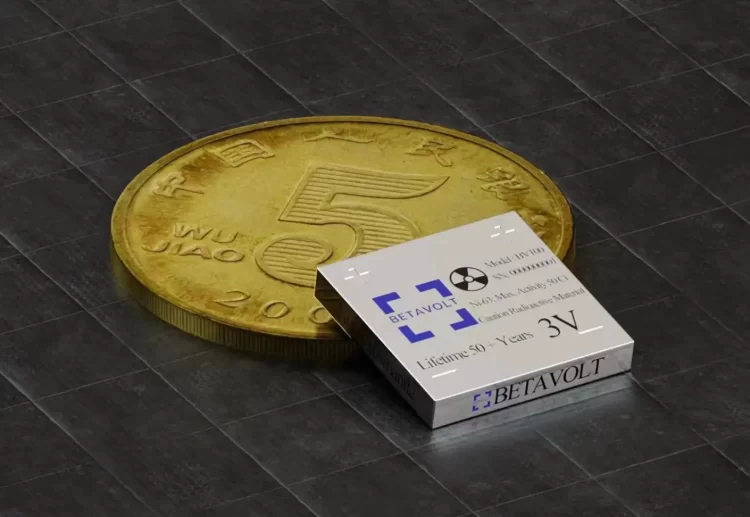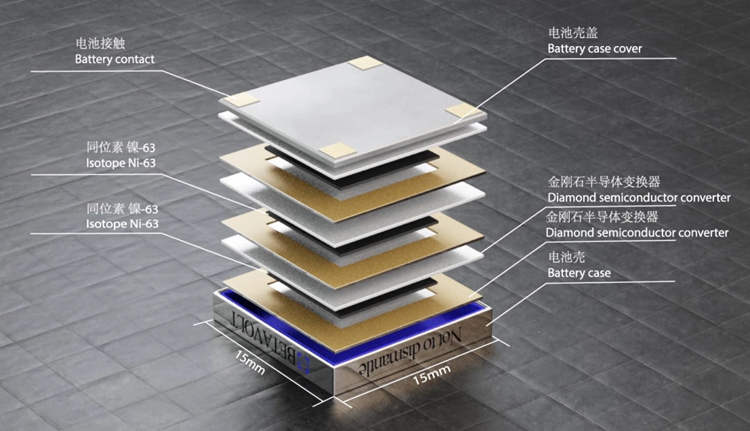Chinese company Betavolt recently unveiled its BV100 battery which is smaller than a coin in size but has a lifespan of around 50 years and doesn’t require recharging.
Atomic batteries aren’t new. Both the United States and the USSR produced such power units during the 1960s, but these nuclear batteries were large, dangerous, and expensive to make. Plutonium was used as the radioactive power source for the first atomic batteries, but science has come a long way since, and Betavolt’s revolutionary battery now relies on a much safer isotope, nickel-63, which decays to a stable isotope of copper. The diamond semiconductor material in the battery allows it to run stably in environments ranging from -60 to 120 degrees Celsius. Measuring just 15mm x 15mm x 5mm, the new Betavolt BV100 constantly generates electricity as the isotopes degrade, unlike conventional batteries which simply store energy.

The Beijing-based company claims that it is the first to successfully miniaturize atomic energy, fitting 63 nuclear isotopes into a battery smaller than a coin. This breakthrough puts it “way ahead” of all other European and American academic and commercial institutions.
The phrase “atomic battery” doesn’t sound safe, but Betavolt claims that its BV100 battery is perfectly safe for consumers, as it won’t leak radiation even if its protective cover is punctured. The company plans to begin mass-producing the battery later this year, and introduce a more powerful version in 2025. In the future, Betavolt plans to target the aerospace industry, medical equipment, AI devices, small drones, robotics, and virtually any industry that needs batteries with a lifespan of 50 years.
The BV100 is considered a breakthrough on many levels, but as several tech news outlets point out, the power output of 100 microwatts at 3 volts isn’t particularly impressive. Betavoolt plans to launch a new 1-watt atomic battery in 2025, and as technology improves, we may soon see smartphone batteries that require no recharging.

“The battery could enable devices like smartphones to operate indefinitely without recharging or drones to fly without landing,” the company writes on its website.
The Betavolt BV100 and its 1-watt successor are impressive enough, but the Chinese company is already looking for ways to improve the lifespan and power output of its atomic batteries. It is currently experimenting with isotopes like strontium-90, promethium-147, and deuterium, and hopes to produce batteries with a lifespan of 230 years.






